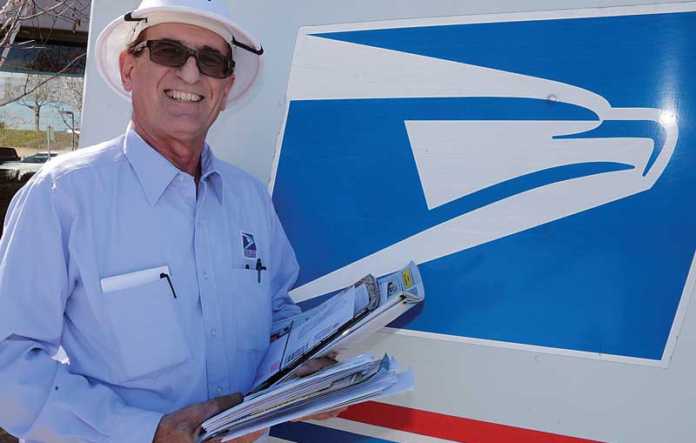WATSONVILLE — Letter carrier Leo Teixeira recently hung up his mailbag and parked his delivery truck for the final time in Watsonville following 35 years and one month of being on the beat. With as many as 750 customers along his City Route, Teixeira, born in 1955, said the time had come to change.
“For now I just want to relax,” he said. “I have a 3,589 square-foot house that is just too big; all the kids are out of the house and I want to downsize to a smaller house. My kids are now in Sacramento, Gilroy and Southern California. Everything is so expensive so downsizing makes sense.”
Teixeira was born in the Azores in the small town of Velas on the island of St. George. In November his marriage with his wife, Mena, will reach 40 years.
Teixeira said he switched from a low-paying job to the postal position because it paid two dollars more an hour.
“It was not my dream career but it gave me a chance to raise my family and get our children through their schooling,” Teixeira said. “Mostly what I like about this kind of work is the people that I met throughout the years, the people I served and the people I worked with. Some folks have been very kind to me and stop to share a few words over the years and I liked that we came to know one another — that’s the best part of this job.”
On the tough side, Teixeira said the hardest part of his work is the bureaucracy at the Post Office and that some of the rules and regulations “have become too strict.”
“There are simply too many rules and that makes it trying,” he said. “I believe that’s why so many people try out this job and then leave after a few weeks. And sometimes some people are working 12 hours a day and weekends. That’s hard.”
Teixeira said automation also played a role in helping his line of work, but also adding more to do at the same time.
“At first we had to case all the letters and flats (magazines, newspaper, etc.),” he said. “Then automation came along and replaced much of that. All the letters are run out through a machine. But what this meant was that letter carriers ended up with more street deliveries. Before, I typically had 550 addresses. And that went up to 750. The machines made it easier in a way because we didn’t have to put those things in order but it also meant more street deliveries.”
Teixeira said he is just now beginning to test the waters of retirement.
“I’m still learning about retirement,” he said. “So far I have not done much. I’m walking every day, and I want to make it a habit. Looking back, I guess I feel lucky that I met a lot of friends in the postal service and outside the postal service. It was the best part of the job: The people that I met along the way that touched my life.”
Being a textbook standard that letter carriers do get bitten by dogs now and again, Teixeira responded thusly: “I’ve been blessed in 35 years that I’ve never been bitten. I had a close scare a few times and had a few close calls but that’s it.”
When asked what his parting words would be, Teixeira said “I cannot thank everybody throughout the years. People at the Pajaronian and others along my regular route were so nice and kind. I was privileged.”













